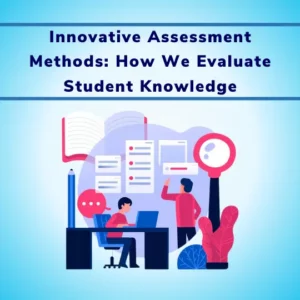Article Contents
Introduction
Artificial Intelligence is no longer a buzzword but a reality in higher learning, defining a new frontier for educators and students.
This article reveals how AI Adoption in higher education is crafting customized academic journeys, delivering administrative agility, and equipping students for future professional landscapes, all through the lens of innovation and ethics.
We’ll unpack AI’s role, delve into the nitty-gritty of its applications, and uncover the ethical imperatives driving its adoption in campuses worldwide.
Key Takeaways
- AI is transforming higher education by providing personalized learning pathways, enhancing student support through intelligent systems, and increasing administrative efficiency.
- Educators are benefiting from AI with data-driven insights to improve teaching, as a collaborative tool for research, and to inspire creative problem-solving in the classroom.
- AI is preparing students for the workforce by offering tools for predictive career planning and creating closer connections between academia and industry, while ensuring ethical considerations like algorithmic bias and data privacy are addressed.
Exploring AI’s Role in Shaping Modern Campuses
As AI technologies permeate higher education institutions, they are revolutionizing the traditional learning landscape, paving the way for a more dynamic, personalized, and efficient education system. AI’s influence in academia is multifaceted, encompassing student learning, administrative processes, and faculty support, thereby making a profound impact on the overall college experience.
AI-powered tools are reshaping the student learning journey and streamlining administrative tasks. Some key benefits of AI in education include:
- Facilitating the creation of personalized learning pathways
- Enhancing student success through intelligent systems
- Bolstering efficiency in administrative tasks
- Improving student retention
AI technology, including machine learning and predictive analytics, is revolutionizing education and paving the way for a more effective and personalized learning experience.
Now, let’s examine the transformative aspects of AI in higher education in more detail.
AI-Driven Personalized Learning Pathways
In the realm of student learning, artificial intelligence has been a game changer, enabling the creation of personalized learning pathways that adapt to each student’s unique strengths, weaknesses, and preferences. AI algorithms process individual learning styles, preferences, and performance data to tailor the learning process to each student’s needs. This level of personalization not only enhances student learning but also supports faculty in their teaching efforts.
The transformation of learning experiences through AI-driven personalization ensures that education isn’t a one-size-fits-all approach. Instead, AI tools provide learning experiences tailored to each student’s goals, interests, and prior knowledge. The result? A more engaged and motivated learner, a more effective and informed educator, and an overall improved learning process.
Intelligent Systems for Student Support
Alongside personalized learning pathways, AI also plays a crucial role in enhancing student support. AI-powered intelligent systems, like virtual assistants and AI tutors, provide personalized support and real-time feedback to students, enhancing their learning experience.
These intelligent tutoring systems utilize natural language processing to offer personalized support, respond to student questions, provide access to resources, and deliver tailored assignment feedback. By identifying individual learning patterns and preferences, these systems can develop personalized learning plans, recommend tailored assessments, and offer real-time responses, significantly enhancing student performance and engagement.
Administrative Efficiency Through AI
AI is not only revolutionizing the student learning experience but also streamlining the administrative side of higher education. AI technologies like Natural Language Processing (NLP) and Robotic Process Automation (RPA) automate administrative tasks, freeing up time for educators to focus more on student support.
Institutions are leveraging AI to automate tasks such as:
- Managing routine inquiries through chatbots
- Streamlining processes like scheduling and attendance monitoring
- Assessing minor tasks like homework assignments and quizzes
This move towards AI-powered automation contributes to the efficiency of higher education institutions, making them more attractive to prospective students.
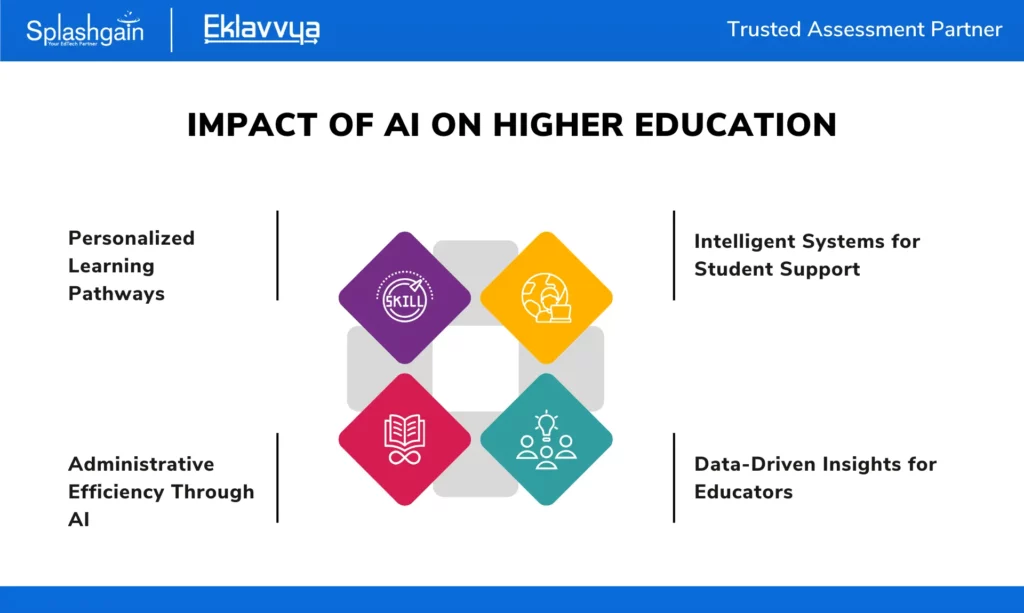
The Synergy of AI and Faculty: Empowering Educators
AI is not just a tool for students; it’s also an empowering ally for educators. By providing data-driven insights, fostering collaboration in research, and enhancing creative thinking in the classroom, AI is unlocking new possibilities for faculty in higher education and helping to support faculty in their endeavors.
AI’s ability to analyze educational data and produce actionable insights plays a pivotal role in guiding instructional decision-making. It enables teachers to pinpoint learning gaps, adjust teaching strategies, and implement targeted interventions to support each student’s progress.
We’ll further examine how AI is empowering educators in the following areas.
Data-Driven Insights for Informed Teaching
One of the ways AI empowers educators is by providing data-driven insights. These insights, generated by AI algorithms, enable educators to make informed decisions about teaching strategies and student support.
For instance, AI tools like Cognii provide a virtual learning assistant that can:
- Analyze student performance data
- Provide personalized feedback
- Suggest further practice
- Offer guidance on improvement in specific areas
This kind of data-driven insight makes teaching not just an art, but also a science, leading to more effective teaching and the ability to enhance student learning.
AI as a Collaborative Tool in Research
AI is also proving to be an invaluable collaborative tool in research. It is fostering unprecedented levels of collaboration in academic research by:
- Uniting researchers from various disciplines
- Automating repetitive tasks
- Analyzing extensive data sets
- Formulating new research inquiries
AI tools like Wordvice AI, ChatGPT, and Typeset.io are revolutionizing the way research is conducted, enhancing team collaboration, expediting data analysis, improving knowledge search and identification, and elevating research quality and efficiency. As a result, we are witnessing a surge of interdisciplinary work and new discoveries, unlocking new frontiers in academia.
AI Driven Assessment of the Student
Generative AI technology can be used to examine to evaluate various skills. Traditional exam process fails to assess problem-solving ability and practical aspects of the knowledge. Using Generative AI it is possible to evaluate the practical knowledge of the student.
Using Generative AI based tests, students employability can also be improved. It provides an interactive assessment framework where candidates need to respond to personalized questions about a particular context or topic. At the end of the interactive assessment, the system generates a skill rating report
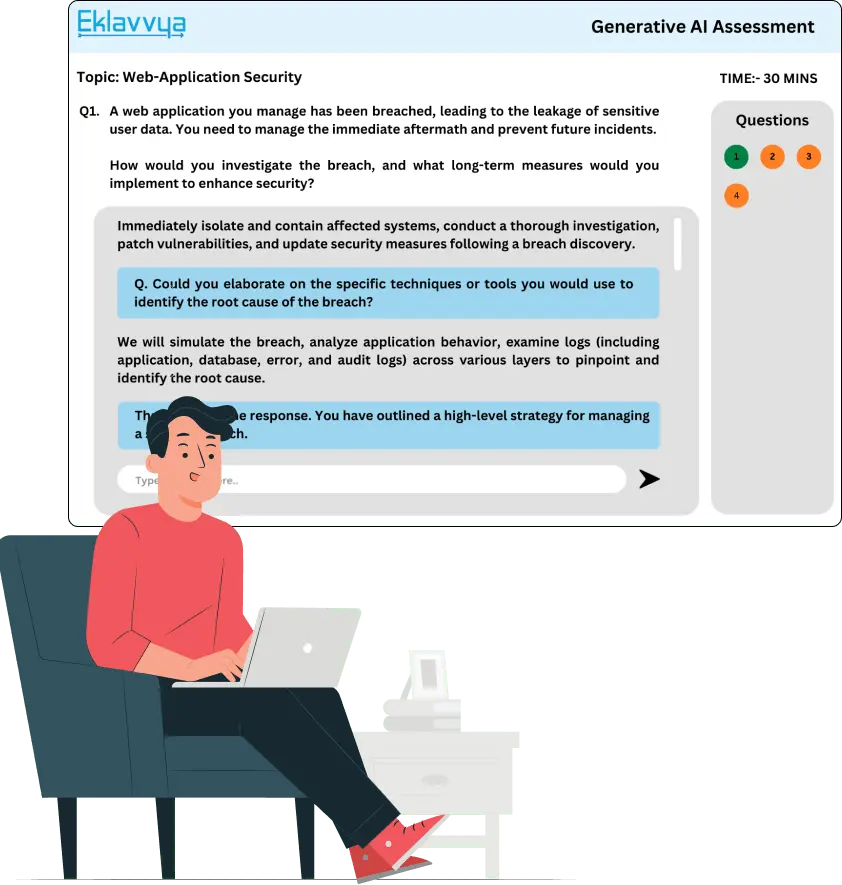
Automate Question Paper Generation according to Syllabus
Another fascinating application of AI involves generating question papers. Imagine you have a specific syllabus for an exam or a particular topic. If you need to design an examination process, AI can come to your rescue. Here’s how it works:

- Upload Your Syllabus: You start by uploading your syllabus to an online AI tool. This is the first step where you inform the AI about what topics are covered in your course.
- Set Your Preferences: Next, you can specify what you need. This includes setting the difficulty level and highlighting the key areas of your syllabus that you want the exam to focus on.
- AI Creates Unique Questions: Once you’ve set your preferences, the AI takes over. It generates a set of unique questions based on your syllabus. The beauty of this is that each question is crafted to match the topics and difficulty level you’ve selected.
- Evaluating Student Capability: These AI-generated questions are a powerful tool for assessing students. They ensure that your exams are perfectly aligned with what you’ve taught, making the evaluation process more effective and relevant.
In essence, creating exam questions according to a syllabus becomes incredibly simple and efficient with generative AI-based question paper generation tools. It’s a great way to ensure that your assessments are both comprehensive and tailored to your course content.
Enhancing Creative Thinking in the Classroom
Beyond data-driven insights and research collaboration, AI also has the potential to inspire creative thinking and problem-solving in the classroom. By generating original combinations of ideas, promoting collaboration and innovation, and providing AI-generated prompts and suggestions, AI can stimulate creative thinking among students.
AI-powered interactive learning tools cultivate critical thinking, collaboration, and creativity skills by prompting students to engage in problem-solving, collaborative work, and critical thinking. These tools not only inform teaching strategies but also cultivate an environment that stimulates students to engage in creative thinking and problem-solving.
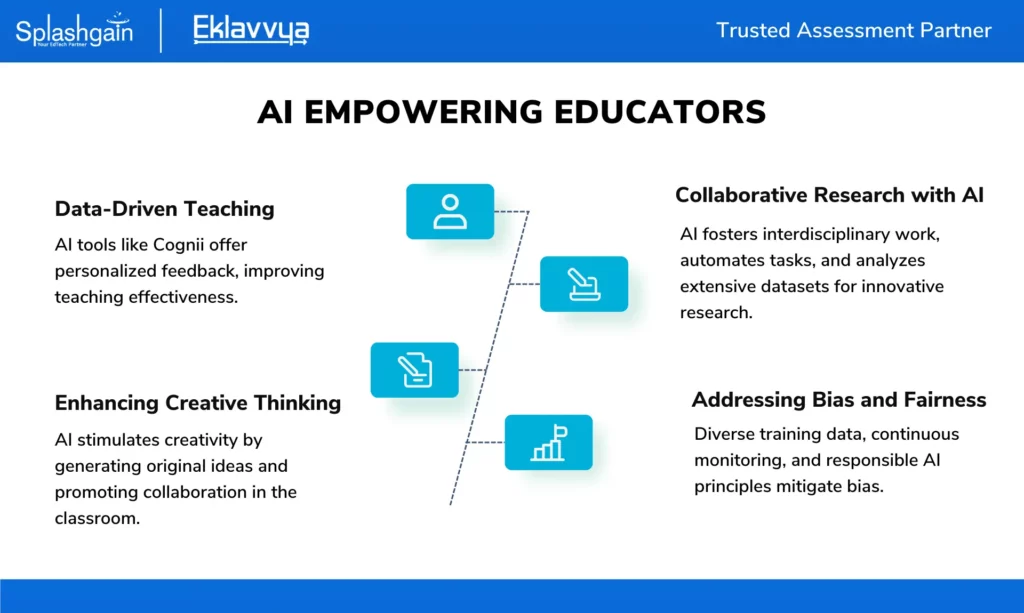
Navigating the Job Market: AI’s Influence on Career Preparation
As AI continues to revolutionize higher education, it’s also playing a crucial role in preparing students for the job market. By providing predictive analytics for career planning and bridging the gap between academia and industry, AI is preparing students for success in their future careers.
AI supports career path planning through various applications, including:
- Resume scanning
- Talent management
- Reducing employee turnover
- Promoting diversity and inclusion
- Generating personalized job recommendations
Now, let’s examine these AI applications in the realm of career planning and preparation more closely.
Predictive Analytics for Career Path Planning
The application of AI in career path planning has been a game-changer. By examining both existing and historical data to forecast future trends, and results, AI can provide valuable insights into industry trends, job market demands, and emerging sectors.
AI-driven career path planning tools like SPSS Statistics and H2O Driverless AI provide personalized recommendations for academic paths and future careers, ensuring students are well-prepared for employment and positioned for leadership roles.
By identifying areas where students may require improvement and providing customized feedback and additional practice to address specific challenges, these tools are significantly enhancing the career planning process.
Improving Student Communication Skill
AI can be effectively used to improve student communication skill. In this context generative AI based audio or video assessment can be used to evaluate presentation, and communication skill of the student.
Imagine you’re practicing for a big presentation or getting ready for an important interview. It can be a bit nerve-wracking, right? Well, guess what? AI, or Artificial Intelligence, can actually help students become better at communicating!

Here’s how it works:
- AI-Powered Practice Sessions: Think of it like a high-tech rehearsal. The AI acts like an audience or an interviewer. It asks you questions, and you have to respond just like you would in a real situation. But here’s the cool part: you can answer either by recording a video or an audio message.
- Recording Your Responses: After you give your answer, the AI saves your video or audio. This is where the magic happens. The AI isn’t just storing your responses; it’s getting ready to give you some really helpful feedback.
- Evaluating Your Skills: Now, the AI turns into a coach. It reviews your recording and checks out how you’re doing in several areas:
- Communication Skills: Are you clear and easy to understand? Do you get your point across well?
- Body Language: If it’s a video, the AI looks at your body language. Are you standing confidently? Are your gestures helping you make your point?
- Confidence Level: Do you sound sure of yourself? Are you speaking too fast or too slow?
- Knowledge about the Topic: The AI also checks if you really know your stuff about the topic you’re talking about.
- Automated Exams and Vivas: Here’s another cool thing. This AI technology isn’t just for practice. Schools and colleges can use it to conduct viva exams (oral exams) automatically. You’d answer questions verbally, and the AI would assess how well you know your subject.
Bridging the Gap Between Academia and Industry
Another significant impact of AI on higher education is its role in bridging the gap between academia and the needs of the industry. By ensuring that the handling of AI in academic settings aligns with the practical, real-world requirements of the industry, AI is helping to create a seamless transition for students from the classroom to the workplace.
AI is facilitating this connection by offering a collaborative approach that aligns the purposes and ideologies of academia and industry. It provides real-world exposure through internships, thereby enhancing the preparedness of students for the job market. Some key ways in which AI is bridging the gap between academia and industry include:
- Aligning the curriculum with industry needs and trends
- Providing access to industry experts and mentors
- Offering real-world projects and case studies
- Facilitating internships and work placements
- Supporting career development and job placement services
These initiatives ensure that at risk students, as well as others, are equipped with the necessary skills and knowledge for professional development, enabling them to thrive in the industry and contribute to its growth and innovation.
With AI, education is no longer confined to the four walls of a classroom, but is increasingly becoming a real-world, practical experience.
The Ethical Dimension of AI in Education
As we continue to embrace AI in higher education, it’s crucial to acknowledge the ethical dimension of this technological revolution. Key ethical considerations include addressing biases in AI algorithms and promoting fairness, along with protecting student data privacy.
The discussion on ethics is not just a theoretical one; it has real-world implications on the learning experience of students and the teaching strategies of faculty. Now, we’ll delve into the ethical considerations of AI in higher education more thoroughly.
Addressing Bias and Fairness in AI Algorithms
A significant ethical consideration in the use of AI for higher education is addressing bias and fairness in AI algorithms. Unfair outcomes can occur due to skewed or limited input data, unfair algorithms, or exclusionary practices during AI development, which can perpetuate harmful stereotypes and inequities.
To guarantee fairness and reduce bias in AI systems for education, a range of measures are implemented:
- Utilizing diverse and representative training data
- Consistently monitoring for acquired biases
- Performing thorough testing
- Adhering to responsible AI principles
- Identifying and addressing potential bias sources
- Establishing protocols for bias elimination
- Implementing procedures to systematically decrease bias.
Safeguarding Student Data Privacy
Another critical ethical consideration is the protection of student data privacy. As AI collects extensive information about the preferences and actions of students and teachers, it’s essential to have stringent safeguards in place to protect this data.
Universities and colleges are addressing this concern by implementing measures to safeguard student data and adhere to privacy regulations.
This includes adhering to laws like the Family Educational Rights and Privacy Act (FERPA), which affords students authority over their academic records and personal data disclosure, ensuring that student data is protected and the integrity of the learning environment is maintained.
Charting the Future: AI’s Long-Term Impact on Higher Education
As we chart the future of higher education, it’s clear that AI will continue to play a pivotal role. The long-term impact of AI on higher education promises to be transformative, heralding the evolution of learning environments and preparing us for new realities in academia.
From personalized learning experiences to streamlined administrative tasks, AI’s long-term impact on higher education is vast. We will now further examine these transformative aspects and how AI is set to continue influencing higher education in the foreseeable future.
The Evolution of Learning Environments
As AI continues to advance in leaps and bounds, we can expect learning environments to become increasingly personalized, adaptive, and efficient. AI is significantly altering the landscape of education by enhancing personalized learning, catering to the specific needs of individual students, enabling data-driven decision-making for educators, and enhancing academic achievements.
The transformation of traditional learning into digital learning is another significant long-term impact of AI on higher education. AI is paving the way for a future where education is not confined by geographical location or traditional classroom settings. Some of the ways AI is enhancing education include:
- Customizing learning pathways
- Providing study recommendations
- Forecasting enrollment trends
- Enhancing the effectiveness and engagement of online learning
These advancements in AI are revolutionizing the way we learn and making education more accessible to all.
Preparing for New Realities in Academia
As AI continues to reshape the education landscape, higher education institutions must adapt to these changes to stay relevant. This means preparing students and faculty for the new realities of academia, where AI technologies are commonplace and integral to the learning and teaching process.
Institutions are incorporating AI technologies to:
- Enhance teaching effectiveness and tailor instruction to accommodate various learning styles
- Streamline administrative tasks
- Offer tailored learning experiences
- Boost student involvement
- Enhance educational results
As AI becomes more ubiquitous, it’s critical for institutions to adapt and prepare for this new reality.
Summary
In conclusion, the integration of AI in higher education is not just a trend; it’s a revolution that’s reshaping the way we learn and teach. From personalized learning pathways and intelligent student support systems to data-driven insights for teachers and streamlined administrative processes, AI is transforming every aspect of the academic journey.
As we move forward, higher education institutions must navigate the ethical considerations of AI, adapt to the growing influence of AI, and embrace the opportunities it presents for the future of education.
Frequently Asked Questions
How is AI used in higher education?
AI in higher education is used for providing instant feedback on assignments and exams, supporting students with special needs, and enabling rapid data analysis, virtual chatbots, and plagiarism prevention. It has the potential to enhance inclusivity, access, and support.
Is AI the future of education?
Yes, AI has the potential to revolutionize education by offering personalized learning experiences and adapting educational programs to make them more engaging for students. This makes AI a powerful tool in shaping the future of education.
What role does AI play in administrative efficiency in higher education?
AI plays a significant role in increasing administrative efficiency in higher education by automating tasks, personalizing education experiences, and analyzing data to improve overall efficiency. These advancements can lead to time and cost savings for educational institutions.
What are the ethical considerations in AI for higher education?
In AI for higher education, ethical considerations involve addressing biases in algorithms, promoting fairness, and safeguarding student data privacy. These factors are crucial for responsible AI implementation.
What is the long-term impact of AI on higher education?
The long-term impact of AI on higher education encompasses the evolution of learning environments, preparation for new realities in academia, and support for students in navigating the job. This will shape the future of education and career readiness.


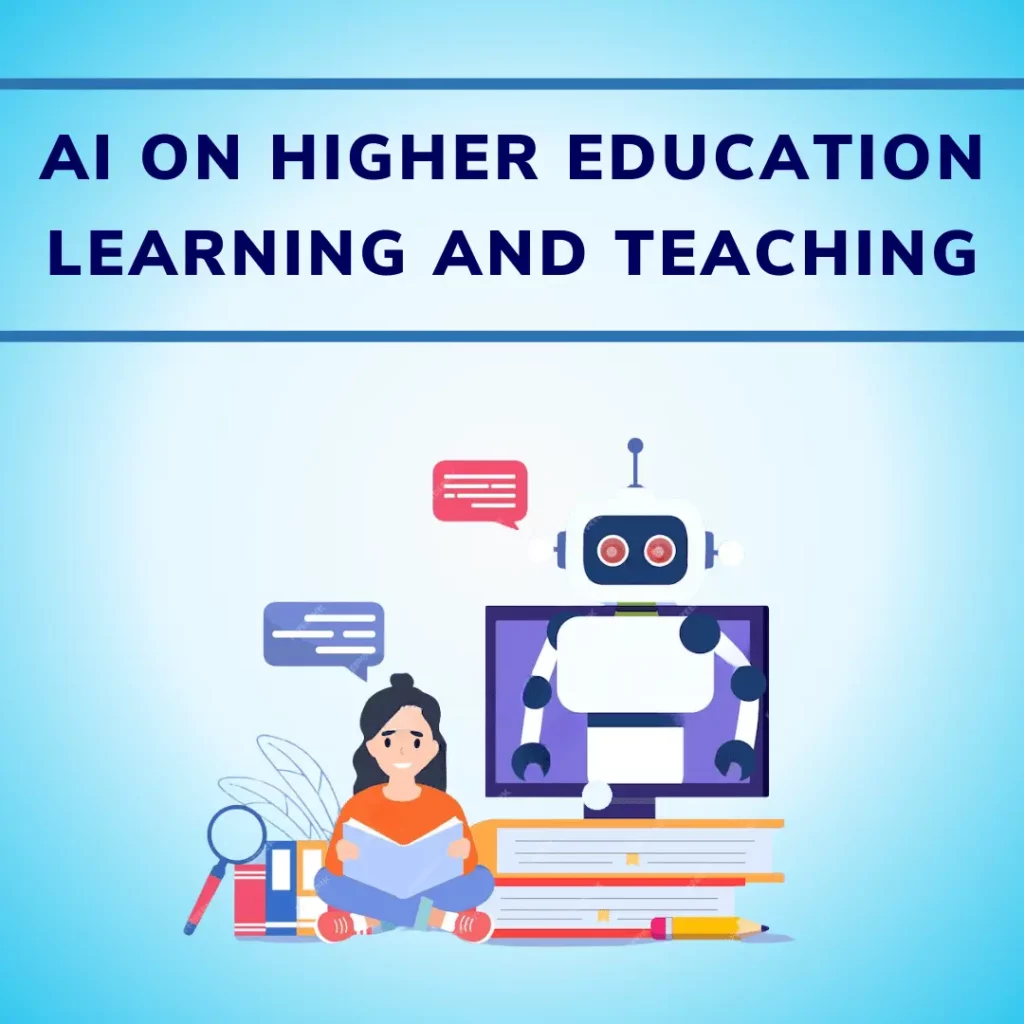
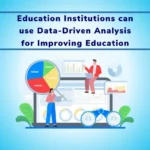
![How Government-Led Exams at 250+ Locations Are Setting New Standards of Integrity [Case Study]](https://www.eklavvya.com/blog/wp-content/uploads/2024/04/Enhancing-Exam-Integrity-Government-Certification-in-250-Locations-150x150.webp)
![Transforming Central Govt. Exams Evaluation: How Onscreen Marking is Leading the Charge [Case Study]](https://www.eklavvya.com/blog/wp-content/uploads/2024/04/How-Onscreen-Marking-Revolutionized-Central-Govt-Exams-Case-Study-1-150x150.webp)
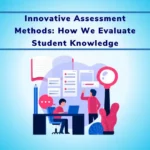


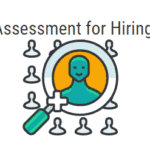









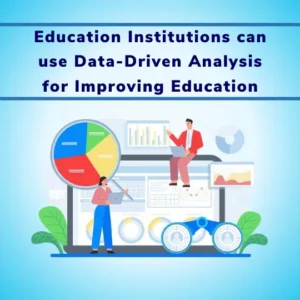

![How Onscreen Marking Revolutionized Central Govt Exams [Case Study]](https://www.eklavvya.com/blog/wp-content/uploads/2024/04/How-Onscreen-Marking-Revolutionized-Central-Govt-Exams-Case-Study-1-300x300.webp)
